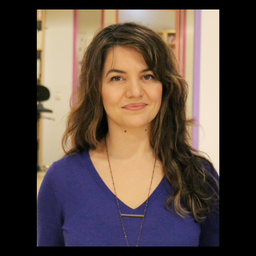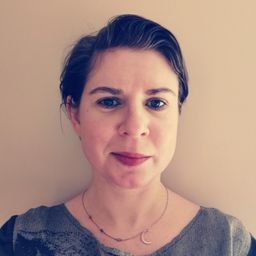Everyday and cultural geographies of Islam/Muslims: expanding the field
My Session Status
Session organizers:
Dr. Galina Scolnic, University of Windsor, Ontario
Dr. Hulya Arik, University of Toronto
This panel consists of papers on Muslims/Islam in lived everyday contexts and cultural realms. We aim to expand the academic literature on geographies of Islam and Muslims in areas such as daily affective encounters, cultural and creative production, spatial configurations of Islam and Islamophobia, gendered and racial constructions of Muslimhood, and beyond. We also question how and on what terms Islam, Muslim and Islamic-ness appear in geographic research and reflect on the epistemic frameworks that circumscribe our discipline.
Session 1: Everyday and cultural geographies of Islam/Muslims: Islamophobia in context
1. Feminist geographies of Islamophobia: a critical review
Dr. Hulya Arik, Assistant Professor, University of Toronto
Geographic literature on Islamophobia has expanded significantly in the past few years (Najib and Teeple Hopkins 2019; Schenk, Gökarıksel and Behzadi 2022). Particularly feminist geographers have explored the lived experience of Muslim women at the intersections of Islamophobia and femonationalism in Muslim-minority contexts, while at the same time attending to the construction of Muslim women as the “epitome of geopolitics” (Najib and Hopkins 2019). In this presentation, I provide a critical review of this emergent literature on Islamophobia and gender in order to identify the underlying theoretical orientations that continue to remain within Western, secular and liberal epistemic frameworks. In conversation with critical secularism studies and anthropology of Islam (Asad 2003, Schielke 2009, Fadil and Fernando 2015), particularly by bringing in theoretical debates on Muslim women’s agency and resistance (Mahmood 2005, Bracke 2008, Sehlikoglu 2018), I aim to present pathways towards a more intersectional and interdisciplinary exploratory framework for feminist geographers.
Muslim women’s geographies of Islamic practice as a response to anti-Muslim violence in India
Wajiha Mehdi, PhD Candidate, Institute of Gender, Race, Sexuality and Social Justice, University of British Columbia
Hindu Nationalism manifesting in the form of lynching, communal violence, procedural erosion of citizenship and anti-Hijab laws is mapping the geographies of violence altering how Muslims conceptualise their everyday geographies in India. One way in which violence takes place at the intersection of gender and sexuality is through multiscalar modes of spatial displacement through Hindu nationalist violence. Nonetheless, when Muslim geographies are read in already determined spaces of violence, they conceal crucial Muslim women’s geographies (Djebar 1994; Hammad 1996; Zayzafoon 2005). This paper explores how Muslim women are not only connected to the landscapes through erasures central to Hindutva but also have a stake in the production of space through physical, imagined and spiritual geographies placed within Islamic ethos (Djebar 1994; Mahmood 2005; Kahf 2016; Zayzafoon 2005). Following insights from the material and experiential spaces of Muslim women explored in the works of Djebar (1994), Mahmood (2005), Kahf (2016), this paper shows how Muslim women carve space for themselves through Islamic ethos of social justice.
Iranians and Muslimness, the lived experience of Iranian immigrants in Canada
Anahid Shirkhodaee, PhD Candidate, Human Geography at Wilfrid Laurier University
Since 9/11, Islam has become the site of much scholarly and popular production and consumption. A great deal of scholarship addresses the so-called problematic nature of Muslims’ integration within the western secular public sphere, referring to it as “the Muslim question.” Although many of these studies usefully address significant discrimination experienced by Muslims and those perceived as Muslim, there is an scholarly investment which attempts to maintain a particular shape to the conversation and ‘the ‘question.’ These studies frame discussions that fix the ontology of Muslimness and reify “a” Muslim identity. Such essentializing power of ‘‘The Muslim Question,’’ overlooks the multiplicity of Muslim identities and their interaction with myriad other changing identities, articulating “The Muslim question” as if there is a singular Muslim identity around which such question can be posed.
Although Canadian Muslims share many similar beliefs, such as their belief in the oneness of God, that Prophet Mohammed has been sent by God, and the holy book, the Quran, is comprised of God’s words, there are differences among them. This includes the version of Islam that they believe, their level of commitment to religion, their practices, the culture of the country that they came from, and the political issues in their country of origin that may affect their attitudes and lives in Canada. It is, therefore, critical to examine different Canadian Muslim groups in their own context to better understand their diverse experience of Muslimness, and subsequently different process of identity negotiation and integration in a new country.
Focusing on Iranian Muslims in Waterloo Region, this paper demonstrates how Iranians’ relationship with Islam and subsequently their experience/interpretation of Muslimness and their identity negotiation process in Canada is impacted by their experience of living under an Islamic theocracy in Iran and the accompanying politicization of their country of origin. The aim is to update studies pertaining to Muslim Canadians and highlight the multiplicity of Muslim identities and varied nature of a community that is wrongly seen as monolithic.




